Of all the people I know, my fiancé, Janie, has the most daily interactions with me – through phone, text message, and nearly everyday, in person. After a late night at work yesterday, I drove over to her place for a few minutes – with the end of Jesus-Music January vastly approaching, I wanted to ask her a question. I wondered if the person who knows me best (besides myself, of course) had noticed any difference in my attitude, my behavior or my mood since starting this challenge on January 1st. I had high hopes. As I asked the question, she smirked – “do you mean, are you more positive; encouraging; K-loving?” she replied, cleverly quoting the tagline of our local Christian radio station. “Yeah, all the above,” I answered. Her face turned serious; I could see the wheels really turning in her head. I braced myself for the good news. And then, as abruptly as a balloon popping, she replied: “not really.” I shook my head. “Well, crap.” Just in case you’re late to this party, let me catch you up: for the last month, I’ve limited my music consumption to bands and radio stations playing only “Christian” music. That meant leaving a good deal of my Christmas and birthday presents unopened, changing the radio presets in my car, and resyncing my iPod. In my world, music is almost always playing – at home, while at work, in the car, and while running and doing chores – so putting a limitation on what I could and could not listen to was a big change. A few days into the challenge, I wasn’t sure I would be able to make; but here I am, only a few hours from February and still secular-music-free. The past thirty-one days have been very eye opening. For the first time, I gave serious thought to the relationship between faith and art, thanks in part to the writing of Christian thinkers like Madeline L’Engle. I’ve fallen back in love with albums I grew up with – bands from that golden era of Christian music like Five Iron Frenzy, Plankeye, and Mae. I’ve learned a new appreciation for current artists who create faith-based music worth listening to – people like Derek Webb, Andrew Osenga and Jon Foreman. At the same time, it’s become glaringly obvious that just because the adjective “Christian” has been attached to an album or band does not mean they are worth your time, money or attention. On top of it all, I’ve complained about Christian radio – a lot. I’ll be honest, when I started this challenge on the first day of the New Year, I was more than a little bit skeptical. Having listened to a mixture of both “Christian” and “secular” music since high school, I wasn’t too excited about fasting from my favorite bands and, to be honest, didn’t expect Christian radio to affect much change in my life. A few days into Jesus-Music January, the Christian radio station that was now the default frequency in my car announced the Thirty-Day Challenge. They were encouraging their listeners to try the same experiment I was just beginning – so much for being original. The radio station promoted this challenge through sound bytes, sent in from listeners worldwide who claimed that Christian music was changing their lives. Each time I heard these commercials, a line from a Keane song played in my head: “ everybody’s changing, but I don’t feel the same.” To the outside world, February 1st will find me much the same person I was on December 31st, 2011, the day before I started the challenge of Jesus-Music January. In fact, the person closest to me, Janie, didn’t recognize any change either. But, as much as I’d hate to sweep it under the rug and move on to next month’s challenge, on this last day of January, I have to admit that I do feel different. From what I can tell about myself, and from Janie’s honest feedback, listening solely to Christian music hasn’t made me more holy; it hasn’t given me super-Christian powers of unceasing prayer or healing; it hasn’t even set me upon good-standing with the Creator of the universe. But Christian music has done at least one thing in my life – wakened me. Life is so busy, so hectic and fast-paced, that it’s easy to move through a whole day without giving a passing thought to the One, as Colossians describes Him, in whom “all things hold together.” The problem is ours – meetings, lunch appointments, cleaning houses, raising children, getting the oil changed – these things just seem to rise to the surface. Busyness robs us of the awareness that God is omnipresent. He is just as much a part of our life as we’re driving our kids to soccer practice as He was during the morning worship service on Sunday. Even us “professional Christians,” members of the clergy and church staffs, are just as prone to this blindness as anyone else – we all need reminders, every day, that God is present, at work in our lives, and pursuing each one of us. Christian music became that reminder for me; if it has changed me, it’s been through increasing my awareness of the God who is always at work around me. Awareness isn’t something that others would notice – it’s not a flashy, stunning or eye-catching. But, at the end of the day, it is important. Over the course of the last month, my awareness of the fact that God is present and working in my life has grown exponentially. I can’t attribute this to anything other than my constant diet of Christian music. At times, it was a welcome reminder, an assurance that got me through the day or helped ease the pain of hurts and struggles. Other times, however, it was more like an annoying neighbor, catching you in the driveway after a long day at work, keeping you from what you really desire: supper and your couch. But either way, the reminder got the message across – my diet of Christian music never let me forget that God was out there, working to bring His will to fruition. Others may not have noticed, but I do feel that this awareness bled over into other aspects of my life, like how I treat others, the decisions I make, and the words that I allow to come out of my mouth. That being said – and Janie can attest to this – just because I was more aware of God does not mean that I always made the right decision, spoke in a loving tone, or treated others better than myself. But for the most part, the music did manage to point me in the right direction. Perhaps more than anything else, this month has taught me that music is a teacher who never stops lecturing – at all times, it is teaching us. Good art proclaims the truth; it is able, as Madeline L’Engle explains, to take “chaos” and transform it into “cosmos” – to take uncertainty, confusion, and questioning, and from those notes, create a song of understanding, acceptance, and faith. It matters little if the music teaching us comes from a “Christian” band; instead, we should be more concerned with the question of whether it is teaching us the truth or not. In my experience, I’ve found that I’m just as likely to hear gospel truth from artists like U2, Bruce Springsteen and Bob Dylan as I am from David Crowder, Chris Tomlin and MercyMe. As the hours end on this first challenge of 2012, the lyrics from a Derek Webb song are echoing around my head: “ this is the end / this is the end / its just the end.” Part of me hates to see this challenge come to a close – there were many blogs I never got around to writing: naming the band that is always playing in my head, the importance of local radio (my “local” station is beamed in from California) or mine and Janie’s treatise on Gungor’s “ God is Not a White Man” (if you haven’t heard this song, stop reading and follow the link). But, the end is here – fortunately for me, that’s all it is, just an end. As skeptical as I was when starting this challenge, I’ve been convinced that the music we take in does matter – but that doesn’t mean that, come February 1st, I won’t pop in my new Ben Folds album. I fully expect to revert back to listening to a mixture of artists from both sides of the musical spectrum – both “secular” and “Christian.” But, although this particular challenge is ending, I won’t walk away unchanged; I’ve learned to listen to all music with new ears, ones honed in to hear and appreciate the truth, now more than ever. And truth is truth, no matter whose mouth it comes from. This is the end, but it’s just the end. There’s a new challenge, waiting just around the corner. See ya in February.
This weekend, I had the pleasure of tagging along with nearly fifty teenagers, and a few brave adults, on a road trip to Ghent, West Virginia, for my church’s annual high school winter retreat. After a full day of skiing, snowboarding and tubing on Saturday, we gathered later that night for a time of worship. The high school ministered challenged us with the story of the ancient Israelites. Having been slaves for over four hundred years, God sent Moses, and a handful of deadly plagues, to rescue His people from the bondage of Egypt. After that dramatic escape, God led the nation of Israel to the shore of the Red Sea, where He delivered them from Pharaoh’s approaching army by literally splitting the water in two. With the fresh first taste of freedom still in their mouths, God began phase three of His rescue plan: guiding the Israelites back to their ancestral homeland. The only thing separating them from this Promised Land was an expansive desert. But God continued to care for His people as they set out across the sand, providing food, water and guidance. You would think, with such daily reminders of His providence, that the Israelites would have had unwavering trust in their God. But instead, when life got challenging, their first response was almost always one of complaining and unbelief. They grumbled to God about not having any food; when He provided it, they complained about it being bland. They cried out for water, and then complained about its taste. Nothing was ever good enough for them. Their eyes were so focused upon themselves that they missed the hand of the Almighty God at work all around them.
Over the course of the last four weeks, what will now forever be known as Jesus-Music January, I’ve done plenty of complaining about “Christian” music. But as this month (and challenge) near their conclusions, I want to be sure that I leave on a positive note, avoiding the type of self-focused complaining that doomed the Israelites to forty years of wandering in the desert. It’s true, there is plenty of music being sold in Christian bookstores and played on faith-based radio stations that is, for lack of better terminology, just not good. But focusing all my energy and attention on this little detail ignores the fact that there are, in fact, some Christian artists out there who get it, who are producing quality work that is, in fact, “very good.”
Attempting to live into the challenge of complaining less, I compiled a list (in no particular order) of my ten essential albums of Christian music – records of both outstanding art and compelling faith. Over and over again, these albums have renewed my belief in the fact that “artist” and “Christ-follower” don’t have to be mutually exclusive terms.
My hope is that this list will either prompt you to remember an old favorite or inspire you to take a chance on an artist you have yet to experience. If there is a glaring hole in my list, an album you feel should be included, please let me know about it – I’ve still got a few days of Jesus-Music January left yet!
The Ten (okay, it’s really twelve) Essential Albums of Christian Music: 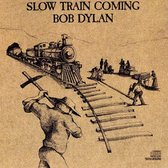
Slow Train Coming – Bob Dylan
The first of Dylan’s Christian albums, released in 1979, it’s full of the fervor and urgency of a new Christ-follower. It’s hard to beat the greatest songwriter of all time telling the greatest story ever told.
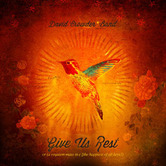
Give Us Rest (or a Requiem Mass in C) – David Crowder* Band
The swan song for the premier worship band of modern Christian music; this is nothing short of a masterpiece. The thirty-four tracks move from bluegrass foot-stomps to progressive rock-and-roll, while exploring the new life found in endings. A must-have for Christian music fans.
 She Must and Shall Go Free / The House Show – Derek Webb
Formerly a member of Caedmon’s Call, Derek Webb released this, his first solo album, in 2003. I purchased it the summer between high school and college; it expanded my faith and understanding of the gospel more than any other album I’ve ever owned. “The House Show,” released a few months later, contains mostly live versions (and Derek Webb’s explanations) of songs featured on “She Must and Shall Go Free.” If Calvin and Luther listened to acoustic folk-rock, they’d own these albums.

A Place Where You Belong – The Normals
The final album from a band who was too good for this world – they disbanded shortly after its release. Lead singer and principal songwriter, Andrew Osenga, explores the idea of “home” throughout this record; interestingly, that’s precisely what it’s become for me – a safe haven, the place where I belong.
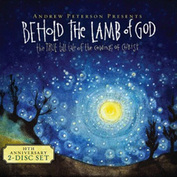
Behold the Lamb of God – Andrew Peterson
Yes, it’s a Christmas album; and, yes, it is good enough to listen to year-round. Mr. Peterson’s opus condenses the story of scripture into twelve songs, taking the listener from the rescue of the ancient Israelites in Egypt, through the Babylonian Exile and on to the unassuming birth of creation’s Savior. The songs on this record move directly from your ears to your heart. Seriously, listen to this.
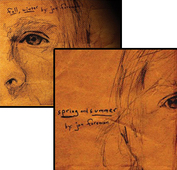
Spring and Summer / Fall & Winter – Jon Foreman
A set of two EPs released by the lead singer of Switchfoot, stand out tracks from each album were later released as “Limbs and Branches” in 2008. One of my favorite thinkers and writers, these EPs find Foreman at the top of his game. If you listen, prepare to be challenged – Foreman doesn’t have much appreciation for comfortable Christianity.
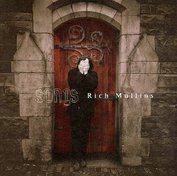 Songs – Rich Mullins
Released just months before his tragic death in a car accident, “Songs” is a retrospective from one of Christian music’s most interesting and devoted artists. If one man were responsible for the handful of Christians making quality art today, it would have to be Rich Mullins. His honesty, devotion, and awe of God is tangible in these songs – there hasn’t been, and never will again, be an artist and man quite like Mullins.
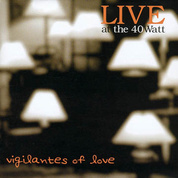 Live at the 40-Watt – Vigilantes of Love
The Vigilantes of Love have to be the most important Christian band that no one has heard of – the group parted ways in the early 2000s. (Front man Bill Mallonee continues to record albums and tour.) In my world, Mallonee and Dylan are the dual-kings of songwriting and this live album is proof enough for that claim. If I was stranded on a desert island and could only listen to one album for the rest of my life, it’d be this one.
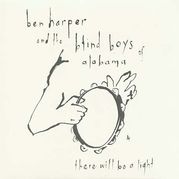 There Will Be A Light – Ben Harper and the Blind Boys of Alabama
This collaborative effort between an Atlanta-based gospel group and a “secular” rock musician won the 2005 Grammy Award for Best Traditional Soul Gospel Album. A believer himself, Harper has long included spiritual themes and questions on his albums; the belief of the Blind Boys proved to be a strong influence, provoking Harper to write some of his greatest songs to date. If you’re looking to have a little church in your car, or at home on a Tuesday night, this is the album for you.
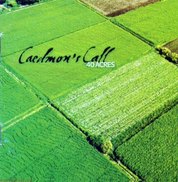 40 Acres – Caedmon’s Call
My favorite record from one of Christian music’s most dependable groups. Outstanding songwriting and incredible musicianship has set Caedmon’s apart from the pack since their first EP was released in 1993. “40 Acres” finds the band exploring the intersection of the Almighty God with our daily, nine-to-five lives; the band has always managed to make music that is, at the same time, inspiring, challenging and uplifting. If you’ve never gotten into Caedmon’s Call, this is a great place to start.
Honorable Mentions:
- The Outsiders – NEEDTOBREATHE
- Please Don’t Make Us Sing This Song – Various Artists
- The Light of Things Hoped For – Brave Saint Saturn
- All the Hype Money Can Buy – Five Iron Frenzy
- Old – Starflyer 59
- CHRISTIANsongs – Joy Electric
- Bleach – Bleach
- Choosing Sides – Andrew Osenga
- Coming to Life – The Normals
- A New Way To Be Human – Switchfoot
Let’s face it – people who aren’t like us are funny. TV shows like The Colbert Report and The Daily Show are built on a foundation of poking fun at the beliefs, ideologies and political leanings of the out-crowd (in the case of these TV shows, that out-crowd usually consists of Republicans). It’s easy to laugh at jokes that aren’t about us. Things get a bit more complicated, however, when we (or people like us) become the butt of the jokes. Humans have a hard time laughing at themselves – it’s a sign of maturity to be able to see the humor in the way you live and look at the world. One of the funniest books I’ve ever read, Stuff Christians Like by Jon Acuff, does this masterfully. A Christian himself, Mr. Acuff finds the humorous side of modern American Christian culture by making a list, like the book title indicates, of all the things Christians like – things like metrosexual worship leaders, feeling guilty for rooting against the Christian in the Super Bowl, and Chick-Fil-A. If you’re a Christian, you know what he’s talking about. (The book started as a blog, which continues to grow weekly: www.jonacuff.com/stuffchristianslike). There are parts of Christianity that are genuinely and unapologetically hilarious – and I think its okay to laugh at them. A few days after starting Jesus-Music January, I stumbled onto a very timely episode of the animated TV show King of the Hill. This show follows a fictional, blue-collar family, the Hills, who live in rural Texas. In this particular episode, Hank Hill, the family’s father, worries that hanging around the “wrong crowd” is negatively influencing his only son, Bobby. Seeking to introduce him to some positive influences, Hank sends his son to a local youth group. Bobby arrives dressed in a suit and tie, carrying a large bible; he soon discovers that this is not exactly how this particular youth group operates. It is, instead, comprised of “cool” Christians who skateboard, have tattoos, and play Christian rock music. For much of his life, Bobby has been a social outcast; finally finding a place where he’s accepted, he jumps right in, taking his new found “faith” to ridiculous and hilarious extremes. After Bobby starts praying to the “J-Man,” talking about wanting a Christian tattoo and wearing a “Satan Sucks” t-shirt, Hank begins to seriously second-guess his decision to send his son to youth group. If you’re able to laugh at yourself, this episode of King of the Hill manages to be both very funny, and yet also quite poignant. After discovering that his son has blatantly disobeyed his parents’ – sneaking out of the house to attend a Christian music festival – Hank goes on a mission to retrieve his son. While there, He confronts one of the Christian rockers, insisting that he “isn’t making Christianity any better, [he’s] just making rock-and-roll worse.” He eventually finds Bobby; the entire car ride home, he gives his “uncool” father the silent treatment. As they pull into the driveway, Hank tells his son that he wants to show him something. In the garage, he gets a box down off the shelf and beings to pull things out of it, piece by piece: a beanie baby, a digital pet, a homemade Ninja Turtle costume. As he shows Bobby each of these items, his father reminds him that at one point in time, he begged for these things – they were the epitome of cool. Years later, noting could be further from the truth; as each item lost its appeal, it was retired to a box in the garage. Turning toward his son, Hank confesses that he’s worried about Bobby’s newfound interest in Christian culture because he doesn’t want “the Lord to end up in this box.” In the end, fads just don’t last. In her book Walking on Water: Reflections on Faith and Art (which I found yesterday at Goodwill for fifty-cents), Madeline L’Engle explains that all good art is Christian, no matter who created it or for what purpose, because it reflects the original Creator, who called all the He had made good. L’Engle sees traces of God in paintings by Van Gogh, the sonnets of Shakespeare and Beethoven’s symphonies. On the other hand, she explains, all bad art, no matter the faith of the writer, painter or sculptor, is inherently unchristian because it fails to reflect that Creator God in whose image we have all been made. Whether you agree with Ms. L’Engle’s assessment or not, its hard to argue against the importance of Christians walking in the footsteps of their God by creating things which are “very good” – be that through writing blogs, painting landscapes, baking pies or raising children. Christian excellence in the arts makes it much more difficult for an unbelieving world to dismiss the Messiah as a passing fad, as a thing that belongs alongside digital pets and Furbies in a cardboard box in the garage. What we do, what we create, really is that important. [Because of copyright laws, this episode of King of the Hill can no longer be streamed for free on the Internet. But if you’re interested in watching it – and you should, cause its really funny – it’s entitled “Reborn to Be Wild,” and is the second episode of season eight, available for download on iTunes or to be streamed through Nextflix.]
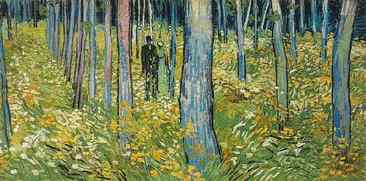 I never thought a piece of art would change my life – at least, I didn’t expect that piece of art to be a painting. But from the moment I first saw it, I knew my life would not, could not, ever be the same again.
I was at the Cincinnati Art Museum with a few friends. Over the course of the day, we split up to explore different areas of the building. To be honest, after an hour or so, I was bored and ready to move onto something I could understand, like lunch. It was at this moment that I turned a corner and nearly ran into the first Van Gogh painting I had ever seen, one of the last works of art he ever created: Undergrowth with Two Figures.
I had casually walked past masterpieces of painting and sculpture all morning, yet felt nothing. But as my eyes set themselves upon Van Gogh’s image of two lovers lost in a maze of trees and wildflowers, I was transported. I wasn’t looking at the painting from the outside; I was inside it, standing among the crooked trees, the wild undergrowth scratching my legs. I could see the two lovers, arm-in-arm, navigating the dangerous terrain surrounding them – but they didn’t see me, their eyes were fixed on each other. I didn’t call to them; the scene was too peaceful, too serene, to be corrupted by something as unpredictable as a human voice. So, in silence, I watched.
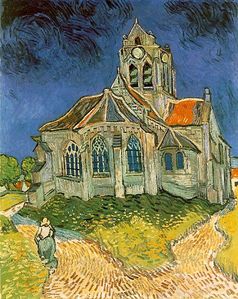 It was unlike anything I’d ever seen before. The paint was thick, layered on the canvas, creating incredible depth. The combination of colors – the green of the undergrowth and the girl’s dress, the blue of the trees and the black of the man’s suit – was as beautiful as anything I had ever seen in nature. The overwhelming power of the forest and the small, yet dedicated couple, melted my heart. Time stopped. I’m not sure how long I stood there, but I do know one thing – I wasn’t ready to leave when my friends finally found me. I didn’t quite understand why, but leaving the art museum that afternoon, I knew I wasn’t the same person who had entered earlier that morning; something deep inside me had changed.
That’s what real art does – it transports, inspires, challenges and changes us. It’s a mystery that I’ve experienced, but can’t even begin to explain. Since that day in Cincinnati, Van Gogh has fascinated me. Growing up in a family of ministers, Van Gogh had a great love of the Gospel. A letter he wrote early in his life explained that it was his “fervent prayer… that it might be given me to become a Christian and a Christian laborer… oh that I may be shown the way to devote my life more fully to the service of God and the Gospel.” As a young man, Van Gogh set out to do just that by training to become a minister. When his performance in theology studies set his original goal out of reach, he chose to become a missionary, living among the working-poor of a coal-mining town in Belgium. Taking the teachings of Christ literally, Van Gogh chose to live in poverty as he witnessed to the poor miners, bunking in a small hut behind a baker’s house and sleeping on a mound of hay. Upon hearing of the Van Gogh’s insistence of squalid living conditions, the church dismissed him for “undermining the dignity of the priesthood.”
Shortly before his death, Van Gogh painted Church at Auvers; a work showing a tall, stately, church building surrounded by a dark and ominous sky. All the windows of the church are shut tight, except for a pair of small openings high in the bell tower; there appear to be no doors. The dirt path running beside the church is empty but for one peasant woman, who seems to be hurrying past, staying as far away from the building as the path allows. As a young man, Van Gogh was eager to give his life in service to the Gospel. Years later, when he looked at a church building, all he could see was a cold, lifeless building, bent on keeping the outside world out. Over a century after his death, my heart still breaks for Vincent Van Gogh, and for the church that failed him.
Christ said we would be recognized by our love for each other (John 13:35), but that we weren’t doing anything remarkable if we only loved those who were like us (Matthew 5:46). Over the past twenty-five days of Jesus-Music January, I’ve a noticed a disturbing trend toward sameness in the world of “Christian” culture. Where are the Christ-followers who dare to be different, the artists – writers, musicians, painters, and sculptures – who aren’t afraid to walk in the footsteps of their God and embrace originality? For many, the Church looks like a cloning factory, intent on creating believers in their own image until we all look the same. Why should they not think this, when Christian bookstores and radio stations are full of carbon copies – the same ideas repackaged and resold over and over and over? Over a hundred years ago, the Church turned its back on one of the greatest artists of all time because he was unpredictable, unorthodox, and even a little weird. But if the Church isn’t a place the rebels, the right-brained, the square pegs in round holes, and the creative can call home, then we’ve made a mockery of the love and imagination of our so-called Messiah.
There was a time when the Church was the hub for the greatest works of art in the world – the Sistine Chapel, the statue of David, the Cathedral of Notre-Dame in Paris. Somewhere along the way, we’ve taken that great history and traded it in for safety, and in return we’ve gotten three-chord choruses and poorly reviewed movies. From what a mighty height we’ve fallen.
I believe that God answered Vincent Van Gogh’s childhood prayer to live a life as a servant of God, not in the pulpit or on the mission field, but with an easel and brush instead. It is a tragedy that the Church didn’t recognize Van Gogh’s talent as an answered prayer; instead of being a positive force offering support for a man plagued by mental illness, he was shunned and sent away for being different. The Bible explains we’ve each been created in the image of God, the ultimate creative artist; therefore, the Church should be full of originals. Christ was not safe – likewise, art (and artists) created in His name will not be either. Instead they will transport, inspire, challenge and change us, just like that Van Gogh painting, still hanging on the wall of an art museum in Cincinnati, Ohio.
One of the most original, inspiring, and life changing artists I’ve ever come across is Bill Mallonee. If Joy Electric is the sound of my heart, and another band the sound of my head (I haven’t forgotten to write part two yet – its in progress), then Bill Mallonee is the sound of my soul. There is no other artist that I’ve ever connected with quite like him. I don’t think my words could come close to explaining how much Bill’s music has meant to me. In the interest of brevity, I’ll spare you the gory details, at least for now. But suffice it to say, if you’re ready to take a refreshing dip into the waters of Christian creativity, start here.
Embedded below is one of my favorite songs by Bill – entitled Skin, it is a retelling of the story of Vincent Van Gogh from the perspective of his older brother, Theo. I hope you enjoy it as much as I do, and that it inspires you to live freely and creatively.
 It was a beautiful Sunday afternoon in late summer, picture-perfect baseball weather. I was in elementary school – second or third grade – riding home from church with my mom and brothers. Normally, I’d be abuzz with plans for the afternoon, but on this particular day my mouth was clamped shut, the most horrific epiphany playing itself out in my head.
I had spent the morning in Sunday School learning about the Ten Commandments, God’s “rules” for righteous living. I was sure most of them were going to be pretty easy to keep – “don’t murder,” I think I can handle that. But one, in particular, was giving me fits. As a kid, baseball was my life. My brothers and I spent every waking moment in backyard games with the neighborhood kids. We had the base paths worn down in the grass – that’s how much we played. My love for this game was making my Sunday School lesson almost impossible to bear – I had to speak up, and soon.
From the back seat of the car I gathered what little courage I had, and fearing the answer, quickly blurted out my question: “Mom, does playing baseball on Sunday count as breaking the Sabbath?” As I imagined my beloved game being replaced with hours of Bible study, I shuddered. I closed my eyes, hoping to keep out the answer I knew was coming – when my mom spoke, her words disarmed me. “Does baseball feel like work?” she asked. It was much too fun to be work; “no,” I responded. She looked back at me through the rearview mirror, smiling: “God is happy when his children to play,” she said. A wave of relief washed over me – the Sunday afternoon game had been saved!
Growing into a man, I’ve found myself routinely replacing play with work. To a fault, I’m a worker bee; there’s always something else to do, so I’m always working. I am not good at resting. That problem must be inherent to the human condition, because when God handed down the Ten Commandments, He spent the most time explaining the fourth one – the command to rest.
“Remember the Sabbath day by keeping it holy. Six days you shall labor and do all your work, but the seventh day is a sabbath to the LORD your God. On it you shall not do any work, neither you, nor your son or daughter, nor your male or female servant, nor your animals, nor any foreigner residing in your towns. For in six days the LORD made the heavens and the earth, the sea, and all that is in them, but he rested on the seventh day. Therefore the LORD blessed the Sabbath day and made it holy.”
Why is it so hard to stop working and just rest?
Andrew Osenga hits the nail on the head with his song Rest: “I should really get some sleep
/ its been so long, its been so long /
all my friends have said to me
you look so tired /
I feel guilty cause there's so much to do /
I feel lazy if I take a breath or two.” Sometime between childhood and adulthood, I’ve managed to pervert the image of my Creator. What used to be a God who was pleased when his children played has been replaced by an impatient foreman, routinely checking over my shoulder to ensure my production quota is being met.
The problem here isn’t God – He invented rest (Genesis 2:2-3). Knowing that we, as humans, would work ourselves into the ground, He personally set aside one-day of every week for us. On that day, we are to take it easy, spend time with Him, and recharge our batteries – who says snow days stopped when school ended? Our Creator, who designed us to need rest, has given us the gift of fifty-two “snow days” every year. He wants us to sleep-in, cozy-up on the couch with a good book, watch movies with our family, take a loved one out to eat, or heck, even play baseball in our backyard till the lighting bugs take over.
Sounds great, right? Fifty-two days of freedom every year – so then why don’t I run to that? Why is it so hard to rest? Mostly, its because I’m afraid. “I should really spend some time
alone with You,” Andrew sings on that same song, “I've always known I'd find You there /
maybe that's why
I keep myself so busy / so I don't have to feel
the fear and anger of my darkness / that is aching to be healed.” Busyness is a numbing agent, masking our hurts, fears, insecurities and doubts. As long as our true selves are in hiding, we’ll never find the healing we so desperately need. And if we’re not careful, our numbness may go so far as to convince us that we don’t need help at all, that we’ve somehow managed to work hard enough to finally get it all together. This is a very dangerous lie.
I’m extremely proud of my fiancé. This past Sunday, she said “no” to everything on her plate, choosing instead to dedicate herself completely to a day of rest. It was difficult and took some planning, but she was able to sleep-in, spend one-on-one time with Christ, paint her toenails, and take time to just breathe – an entire day free of work and responsibilities. As that day came to a close, she commented that she felt renewed, refreshed, and truly alive. It’s funny how much our lives can change in only one day.
As a child, the Sabbath – a Christ follower’s weekly day of rest – was about what I could or could not do. In reality, nothing could be further from the truth. It is, actually, about something much simpler than that: trust. Can I stop moving, working and worrying long enough to trust Christ with all of my life? Do I believe that God loves me because of what I’ve done, or because of who He is? What’s more important: the commands of God or my e-mail inbox; my spiritual health or the stack of papers on my desk; the well being of my family or my to-do list? There’s nothing wrong with hard work, but for it to be healthy and holy, it must walk hand-in-hand with rest.
I’ve never been good at this, but God continues to teach me and offer grace. And at 1:07 A.M., its probably high time I took my own advice.
Good night.
 When I started Jesus-Music January on the first day of the new year, I knew it would be only a matter of time before I blogged about these two bands. I discovered both of them as a teenager; they have remained my original, and longest-standing, favorite musical artists ever since. I honestly don’t think I could go a month without listening to at least one of their albums, so it’s a mighty good thing that both of these groups fit the criteria for Jesus-Music January – they write Christian music. Brothers can be a confusing lot – in a matter of minutes, they can shift from being remarkably similar to as different as night and day. In my life, I have been blessed with two younger brothers whom I love dearly. When we get together, the way we laugh, talk, and interact with others makes its quite obvious that we have the same blood running through our veins. And yet, for all our similarities, there are aspects of our lives that couldn’t be more different – I can be a powerfully shy introvert, while both of them could carry on such a meaningful conversation with a fence post that it’d be compelled to answer back. Brothers are a paradox – different, but the same. Growing up the son of a Southern-Baptist pastor, I was a very straight-laced child. So when middle school hit, and I sought to forge my own identity, I naturally gravitated toward the other end of the spectrum: punk music, wallet chains, and Goodwill t-shirts. The one thing I didn’t question was my faith; put that together with my new taste in music and clothing, and you have what I lovingly call a “church punk.” And that was exactly what I wanted to be. Music is one of the most important aspects of one’s identity, and at this point in my life, I was crazy about two record labels: Tooth & Nail and Solid State. Tooth & Nail was home to great punk and alternative bands like MxPx, the Juliana Theory and Squad Five-0, while Solid State Records, Tooth & Nail’s hardcore and metal division, had a roster that included Blindside, Luti-Kriss (now Norma Jean), and Zao. If a record had a Tooth & Nail or Solid State label on it, chances are I’d give it a chance. But, like most thirteen year-olds, I didn’t have a job, so I had to make the most of my CD purchases. One way I did this was through sampler CDs – albums put out by record labels to introduce listeners to their bands. Most sampler CDs contained one song per artist, giving the listener some insight into their sound. I found some of my favorite bands through these sampler albums. One day, while I was still in middle school, a sampler would allow me the chance to hear, for the first time, the sound of my own heart. The first time I heard Joy Electric – the song Monosynth was on that fateful sampler album – my jaw dropped. Living in a world of punk rock, the “bloops” and “beeps” of electronic synth-pop music turned my world upside down; I had honestly never heard anything quite like it before. Like most people who hear Joy Electric for the first time, I reacted with a raised eyebrow and a sarcastic comment. But the song wore on me; soon, I found myself listening to it on repeat. It wasn’t long before I was begging my parents for a ride to the Christian bookstore, intent on purchasing their newest record, Robot Rock. The album did not disappoint – it was every bit as phenomenal as the sampler track that, just days earlier, had succeeded in turning my musical taste on its head. In no time, I was ordering their back catalogue on the Internet and visiting their website daily. I couldn’t get enough. Joy Electric is the brainchild of Ronnie Martin, a brilliant musician who crafts his masterpieces through the wires of analog synthesizers and sequencers. It’s not traditional, but its so much more than just video game music. The world of Joy Electric lies somewhere between fairy tales (“take my hand / to the wondrous land of lollipop trees / of peppermint flowers / all things make believe” – Burgundy Years), orthodox Christianity (“the work of God grows in us… in Him we go forth / we are children of the Lord” – Children of the Lord), and punk-rock sensibilities (“synthesizers play and the mockers will be through pretending … we’re back with the robot beat … we are the sound of tomorrow.” – Robot Beat). I get lost in the music and lyrics of Joy Electric, but perhaps what I love most about Ronnie Martin is the fact that he’s never been ashamed to be who he is. As the grunge and alternative movement of the 90’s was sweeping the nation, Ronnie was singing songs with names like Buttercup Fairy Jamboree, his distinctive falsetto voice traveling over the wires of his synthesizers. A few years later, when many Christian artists began avoiding that label by insisting that they were “Christians in a band, but not a Christian band,” Ronnie purposefully created his most overtly Christian album to date – CHRISTIANsongs. When I discovered Joy Electric, I thought the bands I was listening to were punk because of their mohawks, piercings and tattoos. I quickly learned, however, that there is nothing more punk rock then having the bravery to truly be yourself. By those standards, Joy Electric deserves to be in the punk rock hall of fame. As I’ve gotten older, my musical tastes have vastly expanded, yet I still find that few bands survive the test of time. One notable exception: Joy Electric. For fifteen years, the music of Ronnie Martin has been a part of my life – at times, more prominently than others – but like an old friend, it seems to always be there, waiting for me with open arms and a genuine smile. Unfortunately, growing up also has the tendency to teach us to hide our true selves in the name of romance, friendship, even jobs. We’re afraid that if people knew the real us, they would run in the opposite direction. This fear incites us into covering ourselves with what we think others find desirable: fashionable clothes, the latest electronic gadgets, and cars we can’t afford. I’m as guilty as the next person. But when I’m honest with myself, looking deeply into who I really am, I find that no matter how hard I try to cover it up, I still have the heart of a child – one filled with fairy tales, dreams I dare to believe in, faith in a God who knows me personally, and hope for a better tomorrow. If you could travel into my heart, you would hear the electronic beeps and whistles of Joy Electric, a band still teaching, all these years later, that its okay to be me. Twenty years into his musical odyssey, Ronnie and Joy Electric continue to push the envelope by simply being themselves – no pretense, no mask, no façade – what you see (and hear) is truly what you get. They are a gift. Unfortunately, most of us miss out on it because of the strange paper it’s wrapped in. But if we dared to open it, dared to listen, we might even find a bit of ourselves inside there as well. Since that fateful day in middle school, Joy Electric has been a resident of my heart. As I made my way into high school, that electronic music that I so adored lead me to another band, one that would be as integral a part of me as Joy Electric. But instead of my heart, they would be moving into my head, the sound of my very own thoughts. The man leading this band was, at the same time, both similar and different from Ronnie. It’s quite a paradox actually – but I’ll save that for the next time. Never heard Joy Electric? Check out the sampling below – and then find yourself a record. Ask me, I’ll be glad to help!
"Monosynth" from the album Robot Rock
"Disco for a Ride / I Sing Electric" from the album CHRISTIANsongs
"You're Material" from the album Friend of Mannequin
1) Cover Songs
When the David Crowder* Band has recorded their own version of a worship song, there is really no need for anyone else to rerecord it – trust me, it’s as good as it will ever be. Remember that next time, Newsboys.
2) Give Us Rest
Speaking of the David Crowder* Band, their final album, Give Us Rest, is ridiculously good – I mean, single-handedly-giving-legitimacy-back-to-the-Christian-music-scene good. For over a week, I’ve been thinking about how to write a blog describing this masterpiece, and, to be honest, words have failed me. This 34-track, double-album, just needs to be experienced. The paragraphs of nice things I would write wouldn’t even scratch the surface. If a beloved band has to come to its end, Give Us Rest is surely the way you would want them to go out. Organized as a liturgical Mass and exploring the theme of finding new life in death, this record presents a band at the pinnacle of their musical talents and secures Crowder’s position as the premier worship songwriter of our time. From the rocking “ Let Me Feel You Shine,” to the banjos, mandolins and down-home foot stomps of “ Leaning on the Everlasting Arms/’Tis So Sweet to Trust in Jesus” and “ Jesus, Lead Me to Your Healing Waters,” there is something here to please everyone. It really doesn’t get better than this. If you’re ready to give up on Christian music, put this album at the top of your list – it just might change your mind. While I’m bummed to have to say goodbye to Mr. Crowder and his band, I am so thankful for a group that, over the course of its sixteen-year history, has been brave enough to consistently make Christ-centered music that pushes the envelope, transcends stylistic boundaries, and proclaims eternal truths. There has never been, and will never be, another group quite like the David Crowder* Band. There are so many incredible songs on this record, that picking just one to write about is a bit ridiculous – but here goes, anyway. The third song on the second disc, “I am a Seed,” caught my attention from its first note and has refused to let go. The past two years have been so difficult – experiencing the loss of friends, watching my grandparent’s health decline, and fighting off the demons of loneliness – that I’ve oftentimes felt like I’ve been “trampled down,” with no choice but to “sink, sink, sink.” And yet with Christ, even in the darkest hours, the light of hope continues to burn. Seeds can only grow when they are pushed down into the dirt, for only then can the “rain [of God’s] love” allow them to “rise up a tree.” God is at work, even when our lives seem to be sinking, for as the song suggests, we too are seeds. And that’s the legacy of the David Crowder* Band – opening our eyes to the God who is constantly at work all around us. When we can catch a glimpse into that reality, our lives will be forever changed, and we’ll learn, as Paul did, how to respond with praise and contentment in any and every situation. So thank you, David Crowder* Band, for the music, the songs, and most importantly, the lessons you continue to teach – I am the better for it. And while I’ll surely miss you, it is my sincere hope that each of you does, in fact, find rest.
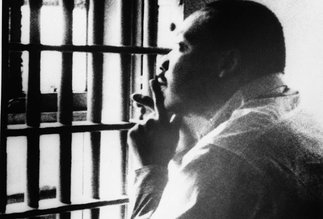 As a first-semester freshman at the University of Kentucky, I signed up to participate in a Discovery Seminar – small classes, on specialized topics, consisting only of first-year students. There were many seminars available – I can’t remember what my first choice was, but it wasn’t the class I saw staring up at me from my schedule: The Life of Dr. Martin Luther King Jr.
Don’t get me wrong, my high school history classes had taught me much about the struggle for racial equality led by Dr. King – I just figured I didn’t have much more to learn. I couldn’t have been more wrong. As I walked into Kinkead Hall for my first day of seminar, I had no way of knowing just how much I would learn over the next five months – or just how much this class would change my life.
Led by Dr. Gerald Smith, a pastor and professor in the history department, this class was full of the diversity that Dr. King appreciated: a blend of races, class backgrounds, sexual preferences and religious faiths filed into the classroom on that first day. A few students came with extensive knowledge of Dr. King already, but most us, myself included, didn’t know near as much as we thought. But Dr. Smith was patient, and taught us with all the passion and fire you would expect out of a Baptist minister. He left no stone unturned – we discussed Dr. King’s strengths, put a microscope up to his very public weaknesses, and read volumes. Somewhere between that first lecture and our end-of-the-year trip to the National Civil Rights Museum at the Lorraine Motel in Memphis, Tennessee, my eyes were opened. No longer was Dr. King only a hero of American history, he was a true champion of the faith.
The apostle Paul, in the book of Romans, wrote “while we were God’s enemies, we were reconciled to Him through the death of His Son.” Christ took the tremendous burden of our redemption on His own shoulders, achieving what we could not. Our sin made us enemies of God, but in His great love, He moved to rescue us. Lately, God has been teaching me about this great love – my whole life, I’ve heard that God loves me, but have always had a hard time grasping it. Even now, as a twenty-seven year-old youth minister, I oftentimes find myself trying to earn His love. But that is just not how my great Savior works. While I was still His enemy, living in ignorance and sin, He chose to redeem me – and this is only a glimpse, a sliver, of His great love.
Christ lived what He taught – “love your enemies, and pray for those who persecute you.” At a point in my life, I was that enemy. The world we live in is one of quick judgments, dividing lines, and hatred. For my entire adult life, the country I call home has been at war, fighting our adversaries in Iraq and Afghanistan. And yet, if I claim to be follower of Christ, my life should reflect His – a man who loved, prayed, and even died for his enemies.
Despite his shortcomings, I have the utmost respect for Dr. King, a man who truly lived out Christ’s command to love. He was spit upon, cursed, stabbed, and routinely threatened, and yet never raised a fist to fight his “enemies.” He understood that the civil rights movement was not only for the benefit of African-Americans – it was also about that majority of Americans content to treat black citizens as second-class. “One day we shall win freedom, but not only for ourselves,” Dr. King noted, “we shall so appeal to your heart and conscience that we shall win you in the process, and our victory will be a double victory.” The fist, the gun, the bomb – they can never conquer hatred; the only thing powerful enough to do that is love. In that same speech, Dr. King continued “now there is a final reason I think that Jesus says, ‘love your enemies.’ It is this: that love has within it a redemptive power. And there is a power there that eventually transforms individuals. That’s why Jesus says, ‘love your enemies.’ Because if you hate your enemies, you have no way to redeem and to transform your enemies. But if you love your enemies, you will discover that at the very root of love is the power of redemption.”
Today, I celebrate the life of Dr. Martin Luther King Jr., a hero of the faith, a man brave enough to live life the way Christ commands. Loving our enemies is difficult, but isn’t this precisely what Christ has done for each of us? May we, through His grace, find the power to do the same.
Embedded below is a track from my favorite songwriter, Derek Webb, imploring the church to learn how to love her enemies – it is both powerful and convicting, a true example of Christian art. Listen closely – a clip from one of Dr. King’s speeches can be heard as well.
Love is always the answer, because “my enemies are men like me.” On this day, especially, may we be encouraged by the bravery of a Christian who dared to believe just that.
Today's guest post is from Olivia Martin, high-school student from Lexington, KY. Olivia is a deep-thinker and talented writer - check out her thoughts on Christian music below. Keep up with her by following her blog: througholiviaseyes.tumblr.com
Like a Prospector Panning for Gold
Music has been one of the most important tools of communication in my life between me and God. It’s a language in which I feel I understand God the most. Having depressive tendencies, a day when I feel low can become blissfully hopeful when I can just sit down, let the tears fall, and let the music do the talking. My anxiety can be calmed just by plugging in the iLive. A song can have memories of moments that I don’t want forget attached to it that I can bring back whenever I turn the sound up. Music is also a form of escape for me, a coping mechanism I use to forget the feelings that haunt me.
I’m no expert when it comes to music, but I’m certainly not one of those people who just takes what the mainstream music industry hands me- I’m not a fan of Justin Beiber’s music and sometimes I can’t stand listening to the radio. I’m a lyrics person, so if there’s any kind of artist whose material provides me with something relatable, tangible, or in-depth, I’m probably going to like them. I’ve recently fallen in love with Indie-Folk bands such as The Head and The Heart, Iron & Wine, The Civil Wars, and the Indie-Rock band Manchester Orchestra. I’m starting to accept the fact that I actually like Dubstep, and I’m trying to expand my portfolio of Hardcore and/or Punk bands to listen to other than TDWP, A Day to Remember, Fall Out Boy, Panic! At the Disco, For Today, The All American-Rejects, Flyleaf, Paramore, You Me At Six, and All Time Low… I really like the jazz sounds of Louis Armstrong, and I consider the singer/songwriter pianist Vanessa Carlton an inspiration to me. If I ever want to listen to something really different from what’s out there, I’ll turn on the Indie/Pop duos Tegan & Sara or CocoRosie. Rob Thomas is one of my favorites to listen to in the car, and Christina Perri is in my opinion, one of the most legitimate female artists out there. Jessie J is one of the few pop stars that I can actually stand, and I have a fairly good knowledge of hip hop artists such as Wiz Khalifa, Trey Songz, B.o.B., Lupe Fiasco, Nicki Minaj, Rick Ross, Macklemore, OnCue, and Chris Brown, mostly thanks to my sister and my best friend. My mind was blown when I first heard Bright Eyes, Death Cab For Cutie, and Regina Spektor.
When I think of certain years of my life, different bands are attached to them. Seventh grade was Hawk Nelson, eighth grade was Paramore. I love going to concerts; I love everything about them- from the excitement of buying the tickets and waiting in line outside the venue, watching the lights go down and the curtains pulling up from the stage; having that out-of-breathe feeling when your throat is too sore to scream the lyrics anymore. My all-time favorite concert was actually by the Christian “party music” band Family Force Five three years ago at Ichthus; I’ve yet to see a band beat that show. The most recent show I went to was the Noise Tour in Cincinnati, which featured You Me at Six and my absolute favorite band ever, Mayday Parade.
It’s been five days since I decided to give up secular music. Now, I almost didn’t give it up. I tried to think of every excuse in the book to prove to myself why I shouldn’t. What I listen to isn’t THAT bad... They only cuss a LITTLE bit in their music... I have several friends who gave it up before I did, and encouraged me to do the same. “I’ll think about it.”… Yeah right. I didn’t feel as if God was leading me to give it up. So I decided to just sit tight for a while. But God started to make me question myself. I started doubting my judgment on this issue. Maybe God wants you too, but you’re just not listening. It won’t hurt to try. I think I knew I probably should all along, but just didn’t want to accept it. Then I came across Caleb’s blog post “Challenge #1: Jesus-Music January,” and something he said in there stuck out to me. “It plays too vital a role in my day-to-day life to remain untouched.” And so began the journey.
There’s been a lot of unexpected things happen from giving up secular music, and a lot of things I expected to happen that didn’t. I expected to miss Mayday Parade or The Head and the Heart too much and give in, but I haven’t. I didn’t expect to accidentally listen to a song, not knowing it was “secular” and closing out of YouTube with shame. But within 3 days of abstaining from secular music, God graciously provided me with a certain opportunity as a writer, in which many people could be touched and impacted by his love. For me personally, writing is a very input-output process. I draw from everything around me to get inspired, especially music. I think God knew that before I was ready for such an opportunity, I needed to clear my head a little. Kind of like a spiritual detox, if you will. I’m not saying that God has “rewarded” me for giving up secular music. And I’m not saying I won’t ever listen to secular music again, I heard God more clearly in some “secular” music than in some “Christian” music. But I think sometimes it’s good to do without for a little while, especially when you have an addictive personality like mine.
Yes, music has been an addiction for me. I realized this while going through and cleaning house on my iPod with my sister (Who is also doing the challenge. If you’re considering taking it, I really suggest doing it with a friend or family member. Accountability makes it easier to stay on track, and it’s a lot more fun singing lyrics off-key in the car when you have a friend.) That was probably the hardest part- It sounds so pitiful, but I was almost crying when I took some of the music off… Even though after three hours of going through it, I re-synced my iPod, and the music was all still there… Not my brightest moment… But hey, it’s the thought that counts right? Clearly, this was something I was relying on too much and needed to be away from for a while. That’s one of the many things I’ve learned during this process- I need to rely more on God than just music to feel ok. And when I finally stopped being so stubborn and listened to what God was telling me to do, He immediately showed me how much more spectacular His plan was than mine. He spoke through a friend much wiser than I am this week. She didn’t even know I gave up secular music, but she said: “Everything is from God. The gift of music is from God. It’s what we choose to do with it that matters.”
Some final words, if you’re thinking about giving up secular music and don’t know where to turn other than Christian radio, FEAR NOT. I want to share with you some really talented artists who use their music to glorify God, while still using their creativity to the best of their abilities: Flyleaf, Needtobreathe, Levi the Poet, For Today, Lecrae, Tedashii, Sho Baraka, Flame, Pro, Andy Mineo, David Crowder Band, Tenth Avenue North, Family Force 5, Casting Crowns, and Skillet. Check ‘em out, you WILL thank me... And I encourage you to listen to what God commands of you, no matter how hard you think it may be- “Good friend, take to heart what I’m telling you; collect my counsels and guard them with your life. Tune your ears to the world of Wisdom; set your heart on a life of Understanding. That’s right- if you make Insight your priority, and won’t take no for an answer, searching for it like a prospector panning for gold, like an adventurer on a treasure hunt, believe me, before you know it Fear-of-God will be yours; you’ll have come upon the Knowledge of God.” ~ Proverbs 2:1-5
Today is Friday the 13th – which means Janie and I will be watching a horror movie tonight. It’s a bit of a strange tradition that started when we were first dating – that first Friday the 13th, we gathered a group of our friends together at Janie’s old house on Pennsylvania Avenue to watch the original Friday the 13th movie. None of us had seen it before. It was, by the way, terrible and not very scary. That is, until the end (spoiler alert) when Jason appears, literally out of nowhere, from under a canoe floating on a peaceful lake. He proceeds to pluck a girl from the canoe and pull her under the water, drowning her. I’m not gonna lie, I jumped and just may have yelled. But everyone else did too, so no one noticed.
There’s not much in common between Christian music and Friday the 13th, except for a controversial band that I adored in high school. Describing themselves as “horror rock,” and using pseudonyms like Shaun Coffin, Spencer Spooks and The Creature, the Deadlines faithfully fused two seemingly disparate ideas: Christ and haunted houses. Even without the horror shtick, the Deadlines were different – a punk band featuring a blistering organ. Add creepy haircuts, eyeliner, an album cover featuring a zombie and song titles like “Go-Go to the Graveyard” and “Vampires in Love,” and conservative Christian eyebrows were sure to rise in protest. With live shows that often featured band members spitting fake blood and setting their guitars on fire, it’s no surprise that the band didn’t last long. Their only “horror-rock” album, The Death and Life of the Deadlines, released on Tooth and Nail records in 2000; the band called it quits in 2002.
For as much as mainline Christianity derided the Deadlines, the band’s music and personae were based on scripture – namely Romans chapter 6. “Don’t you know that all of us who were baptized into Christ Jesus were baptized into His death,” Paul wrote to the church at Rome, “the person we used to be was crucified with Him to put an end to sin in our bodies… so consider yourselves dead to sin’s power but living for God in the power Christ Jesus gives you.” Taking this teaching as the inspiration behind their art, The Deadlines dared to fuse a campy horror gimmick with the gospel of freedom. The results? They were scary good, no pun intended. (Actually, that’s a lie; I intended every bit of it.)
The Deadlines are a perfect example of what is wrong in the world of Christian art – music, books, even film. Paul writes in the book of Galatians that “it is for freedom that Christ has set us free,” yet the majority of Christ-followers insist on living lives of fear. Instead of following our own conscience, guided by the Holy Spirit, we want someone else to tell us how to live. As Derek Webb puts it, we want a new law, a list of right and wrong to make our lives easier. But law robs us of freedom; it robs us of a personal relationship with the Creator in which He guides us through each situation, each question, each confusing day. The Deadlines were different, they didn’t fit the mold of Christian music, and as a result, their career was short lived. How I long for the day when Christians are unafraid to create or support original art – when the songs on Christian radio won’t all sound the same, when books aren’t mere copies of what has sold well in the past, and when film makers are brave enough to ask questions that may not have easy answers. Christians are an image of the Creator to a world that desperately needs to know Him – a Creator that crafted such masterpieces as the stars, dragonflies, coral reefs, and volcanoes. Our God saw fit to construct a world of dazzling variety around us; may we be brave enough to follow His examples with our creations.
How about a little Deadlines for our Friday the 13th? Even if you don’t like it, you have to admit, it’s different – and there’s something very beautiful about that.
(For the faint of heart, the Deadlines included a card in their album sleeve which gave an in-depth explanation for each song. I’ve included my own summary of those explanations below.)
Go-Go to the Graveyard - A song about temptation, in which zombies are used as a euphemism for sin, which entices us to our death (the graveyard). Through Christ, we die to our sins and find freedom.
Horrible Night – Many people assume they will live long enough to become a Christian when they get older, feeling that doing so in their youth will “dampen” their fun. This song explains what is horribly wrong (and dangerous) with that idea.
Vampires in Love – Similar to “Go-Go to the Graveyard,” this song imagines a vampire who is lured to his death by the enticements of another vampire. Focusing on the danger of lust, this song explains that no matter how dressed up sin may be, in the end, it always leads to death.
|
















 RSS Feed
RSS Feed